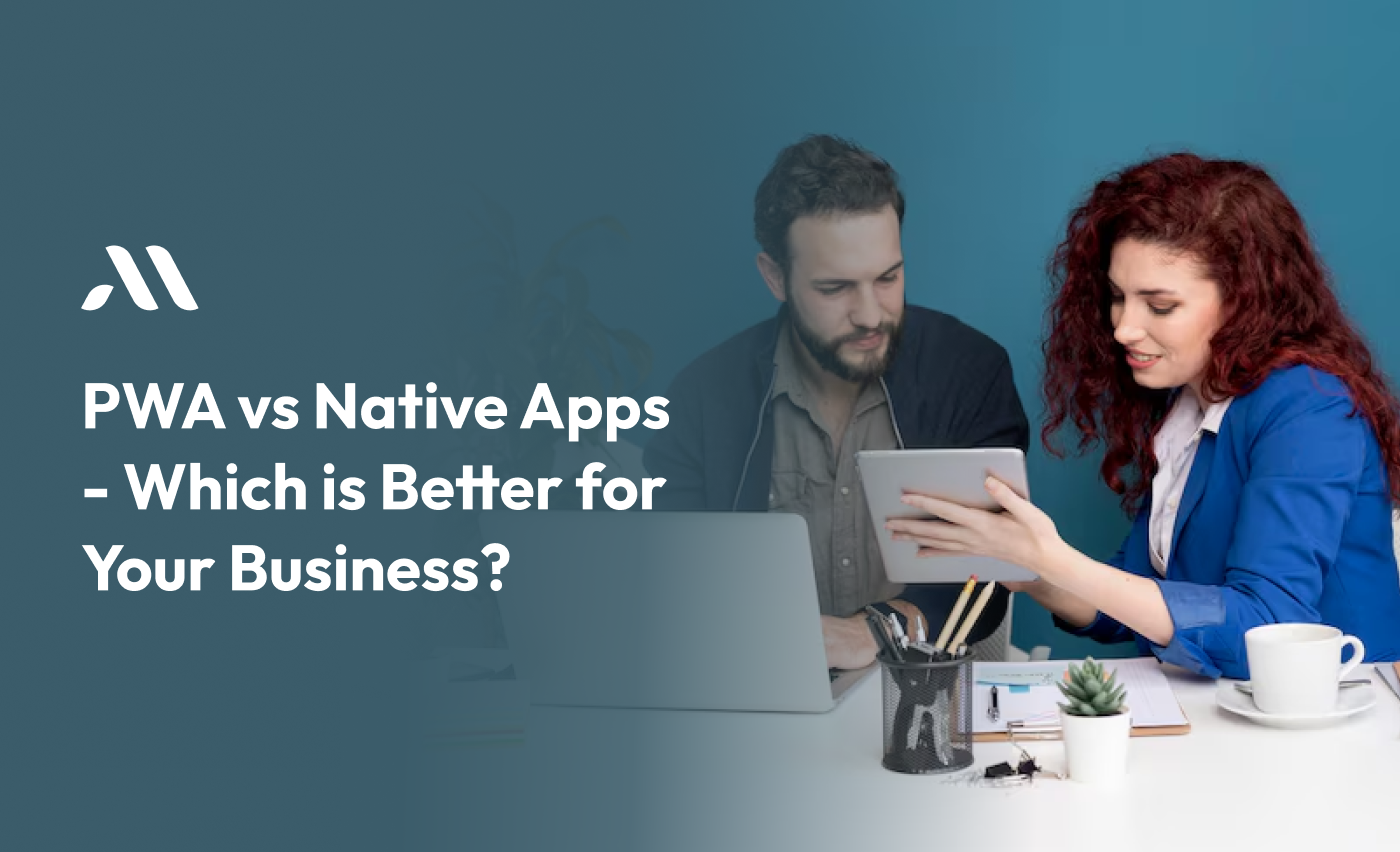As a business owner, you may wonder whether to choose Progressive Web Apps (PWA) or Native Apps to help grow your business. Both have advantages, but which is the better option for your business? In this blog, we’ll dive into the differences between PWA vs Native Apps to help you make the right choice.
What is a PWA?
A Progressive Web App (PWA) is a web-based app that works like a regular website but behaves like an app on your phone. Think of it as a mix between a website and an app. PWAs are built using web technologies like HTML, CSS, and JavaScript but can be installed on your device just like a regular app.
- According to research by App Development Company experts, businesses that use PWAs see up to a 36% increase in conversion rates.
- Native apps account for 70% of mobile traffic, but PWAs are catching up fast due to their flexibility and lower cost.
- PWAs load 15 times faster than native apps on average, providing a smoother experience for users.
Benefits of PWAs
- Works on any device: Whether you're using a smartphone, tablet, or desktop, PWAs function the same way.
- No need to download: PWAs can be accessed directly through a web browser without taking up storage space on your phone.
- Offline capabilities: Even without internet access, some PWAs can continue to work thanks to caching technology.
- Faster updates: Since PWAs are hosted on the web, they can be updated instantly without needing users to download updates.
Tip: If you want to provide a seamless experience to users across different devices, PWAs are a great option. They’re easy to access and don't require much maintenance.
What is a Native App?
A Native App is a mobile application specifically built for either iOS or Android devices. Native apps are downloaded from app stores and installed directly on a user's phone. Native apps often provide a richer user experience, thanks to their ability to tap into a device's hardware, like the camera and GPS.
Benefits of Native Apps
- Performance: Native apps run faster and are more responsive because they are built specifically for the platform they run on.
- Better user experience: Native apps can deliver a better overall experience by using device features like notifications, camera, and more.
- App Store availability: Native apps can be found easily in app stores, which adds a layer of trust for users.
- Enhanced security: With built-in security features, native apps can be more secure than web-based apps.
Remember: Native apps are ideal for businesses that want to offer the best performance and take full advantage of a smartphone's features.
PWA vs Native Apps - Key Differences
Understanding the differences between PWA vs Native Apps can help you decide which is better for your business.
|
Feature |
PWA |
Native App |
|
Installation |
Accessed via browser, no installation needed |
Must be downloaded from an app store |
|
Performance |
May not be as fast as native apps |
Optimized for specific platforms (iOS, Android) |
|
Offline Access |
Works offline with some features |
Fully functional offline once installed |
|
Push Notifications |
Limited support |
Full support on both Android and iOS |
|
Cost |
Instant updates |
More expensive due to platform-specific coding |
Development Costs
When comparing PWA vs Native Apps, one of the most significant factors for business owners is the cost. PWAs tend to be cheaper to develop because they are created once and work across all devices. Native apps, on the other hand, need to be built separately for iOS and Android, which can increase the cost.
Note: According to research, the cost of building a Native App can be up to 50% higher than building a PWA.
When to Choose PWA?
- Budget constraints: If you're a small business with limited resources, a PWA is a cost-effective solution. You get an app-like experience without the hefty price tag.
- Wide audience: If your target customers use different types of devices, PWAs are a smart choice since they work on all platforms.
- Quick updates: If you need to frequently update your app, a PWA helps for faster, seamless updates without requiring users to download new versions.
“For businesses with a broad, global audience, PWAs offer a simple and accessible way to provide an app-like experience without the need for app store distribution.”
When to Choose a Native App?
- Enhanced user experience: If you want to provide the best user experience, especially with rich media and interactions, Native Apps are ideal.
- Access to device features: If your app requires access to the camera, GPS, or push notifications, Native Apps are the way to go.
- Brand presence: Being on the app store can enhance your brand's credibility. Some users trust apps downloaded from app stores more than web-based apps.
Remember: Native apps work best for businesses that need high performance and enhanced user experiences.
Note: While Native Apps still dominate the app market, PWAs are gaining popularity due to their lower cost and broader accessibility.
Also Read - Software Development Statistics and Facts in 2024
Which is Better for Your Business?
Ultimately, whether to choose PWA vs Native Apps depends on your business goals, target audience, and budget.
Choose PWA if:
- You want a low-cost solution.
- Your users access your content from different types of devices.
- You need to frequently update your app.
Choose a Native App if:
- You need high performance and access to device-specific features.
- You want to create a more personalized experience.
- You have the budget for a more expensive development process.
Tip: If you're unsure which option is best, consulting with an experienced App Development Company can help guide your decision. They can analyze your needs and suggest the best solution for your business.
Final Thoughts
In the debate of PWA vs Native Apps, both options have their strengths. For many businesses, PWAs offer a cost-effective, flexible, and easy-to-maintain solution. However, if you're looking for high performance and a deeper connection to device features, Native Apps may be worth the investment.
Ready to take your business to the next level? MicraSol, your trusted App Development Company, helps you choose the best solution whether it’s a PWA or a Native App. Let us build the perfect app to grow your business. Contact us today and start your digital transformation journey!
“Both PWAs and Native Apps have their place in the business world, but choosing the right one depends on your unique needs.”
If you need help deciding between PWA vs Native Apps, consider reaching out to a trusted App Development Company. With their expertise, you can ensure you’re making the best choice for your business.
FAQS
What’s the difference between a PWA and a Native App?
A PWA (Progressive Web App) is like a website that acts like an app, while a Native App is downloaded from an app store and works directly on your phone. PWAs run in a browser, but Native Apps are built specifically for iOS or Android devices.
Which is cheaper to build, a PWA or a Native App?
PWAs are usually cheaper to build because you create them once, and they work on all devices. Native Apps are more expensive since you need to develop them separately for iOS and Android.
Do PWAs need to be downloaded like Native Apps?
No! You don’t need to download a PWA. You can access it through a web browser, and it doesn’t take up space on your phone like Native Apps do.
Can I use a PWA offline?
Yes, some PWAs can work offline because they store information in your device’s cache. However, Native Apps tend to have better offline features.
Which one is faster, a PWA or a Native App?
Native Apps are generally faster because they are built specifically for your phone’s operating system. But PWAs are still quick and can load 15 times faster than regular websites.








